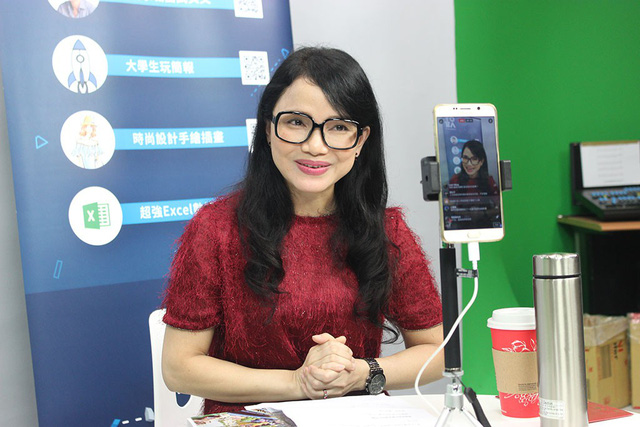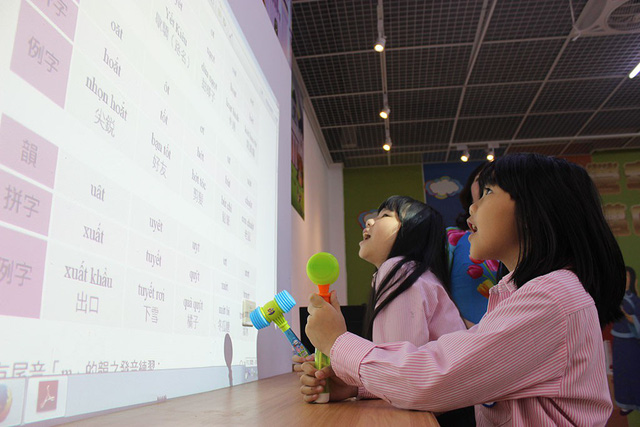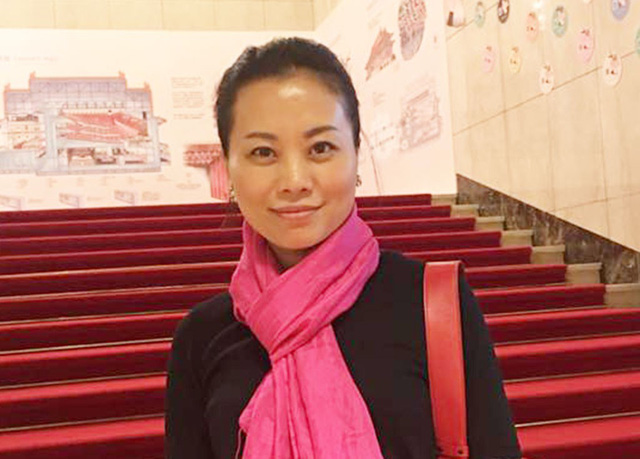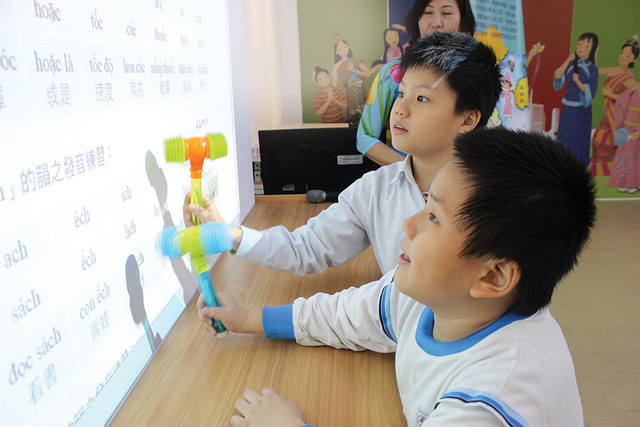Second-generation children of cross-national marriages born and raised in Taiwan now thirst for learning the language of their Vietnamese mothers.
Many Vietnamese language classes in Taiwan are run by mothers who cannot bring themselves to see their children unable to speak their moms' native language.
As Taiwanese businesses look to Vietnam as a promised land for investment, local women look in the opposite direction for a husband and a life which they believe has more opportunities in store.
According to an education official from the Taipei Economic and Cultural Office in Ho Chi Minh City, over 100,000 Vietnamese women are currently married to Taiwanese husbands, giving birth to some 80,000 second-generation children in Taiwan.
“There are an increasing number of women from Southeast Asian countries, including Vietnam, who enter into cross-national marriages with Taiwanese men,” the official said.
“When children of such marriages are born, the education system must adapt itself to the multicultural and multilingual scene in society.”
According to the official, the compilation of an official textbook of Vietnamese has been finished and a team of teachers are being trained to teach the language subject in schools across Taiwan, starting the next academic year.
 |
| Tran Thi Hoang Phuong, a professor of Vietnamese at the National Chengchi University in Taiwan, teaches Vietnamese to online learners using the livestream feature on her smartphone. Photo: Tuoi Tre |
The ABC
At an elementary school in New Taipei City about 30 minutes away from Taipei, Vietnamese has been taught as an optional second language to students for six years, despite the fact that Taiwan would not officially include the subject in its general education until 2018.
Forty-five of its students were born to Vietnamese mothers, and their background has been warmly embraced by leaders and teachers at the school alike.
“On weekends, we would invite Vietnamese parents to dress in their traditional costumes and come to the school to cook Vietnamese food for all students to enjoy and understand more about Vietnamese culture,” the school’s headmaster said.
In one of the classrooms, a teacher speaking Mandarin could be heard teaching her students to learn the basic vocabulary of Vietnamese such as “doctor,” “friend,” and “barber.”
It was a language class for students with Vietnamese backgrounds, taught by Huynh My Man, a Vietnamese national who had lived in Taiwan for seven years since her marriage.
According to Man, she spends 45 minutes each week coming to teach students at the elementary school to speak Vietnamese at the invitation of the school board.
“The most challenging part is that you only have one class a week, so I try to incorporate games into my lessons to help the students memorize the vocabulary better,” Man said.
“I also try to include Vietnamese fairy tales to familiarize my students with Vietnamese culture.”
According to the headmaster, teaching Vietnamese as an optional second language not only helps students with Vietnamese backgrounds understand the language and culture of their home country but also enables Taiwanese students to learn about a new culture.
Nguyen Lien Huong, a professor of Vietnamese at the National Taiwan University, said she had been impressed by how hardworking and serious students of Vietnamese backgrounds in Taiwan are when it comes to learning to speak their mothers' language.
“Some students travel from three to four hours to class, while many have to lie to their husbands’ families that they spent all those times shopping for food or doing the laundry,” Huong said.
Perhaps most representative of such determination is a case of one student who would often bring her kid to class, Huong recalled, and when the child cried she would comfort them by saying, “Let me study, honey. I want to be a teacher.”
 |
| Students at an elementary school in New Taipei City play games during a Vietnamese lesson. Photo: Tuoi Tre |
An official status
Starting 2018, Vietnamese will become an official subject taught from the third grade of Taiwan’s general education, an education official from the Taipei Economic and Cultural Office in Ho Chi Minh City confirmed to Tuoi Tre (Youth) newspaper.
“The Vietnamese textbooks are jointly compiled by experts from Vietnam’s research centers and faculties of Vietnamese studies at universities across Taiwan,” the official said.
“We are working with pedagogical universities in Taiwan and Vietnam to prepare enough teachers for the plan.”
Vietnamese brides in Taiwan, most of whom reside in the cities of Kaohsiung and New Taipei, are also being trained to become Vietnamese teachers in the future when the plan comes into effect.
Up until now, over a thousand such Vietnamese brides have registered for training courses to become teachers, according to statistics provided by the education department of New Taipei City.
“Applicants must sit through a 36-hour course and further tests before they are qualified for teaching,” a New Taipei education official said.
 |
| Nguyen Lien Huong, a professor of Vietnamese at the National Taiwan University. Courtesy of Huong |
Like us on Facebook or follow us on Twitter to get the latest news about Vietnam!



















































